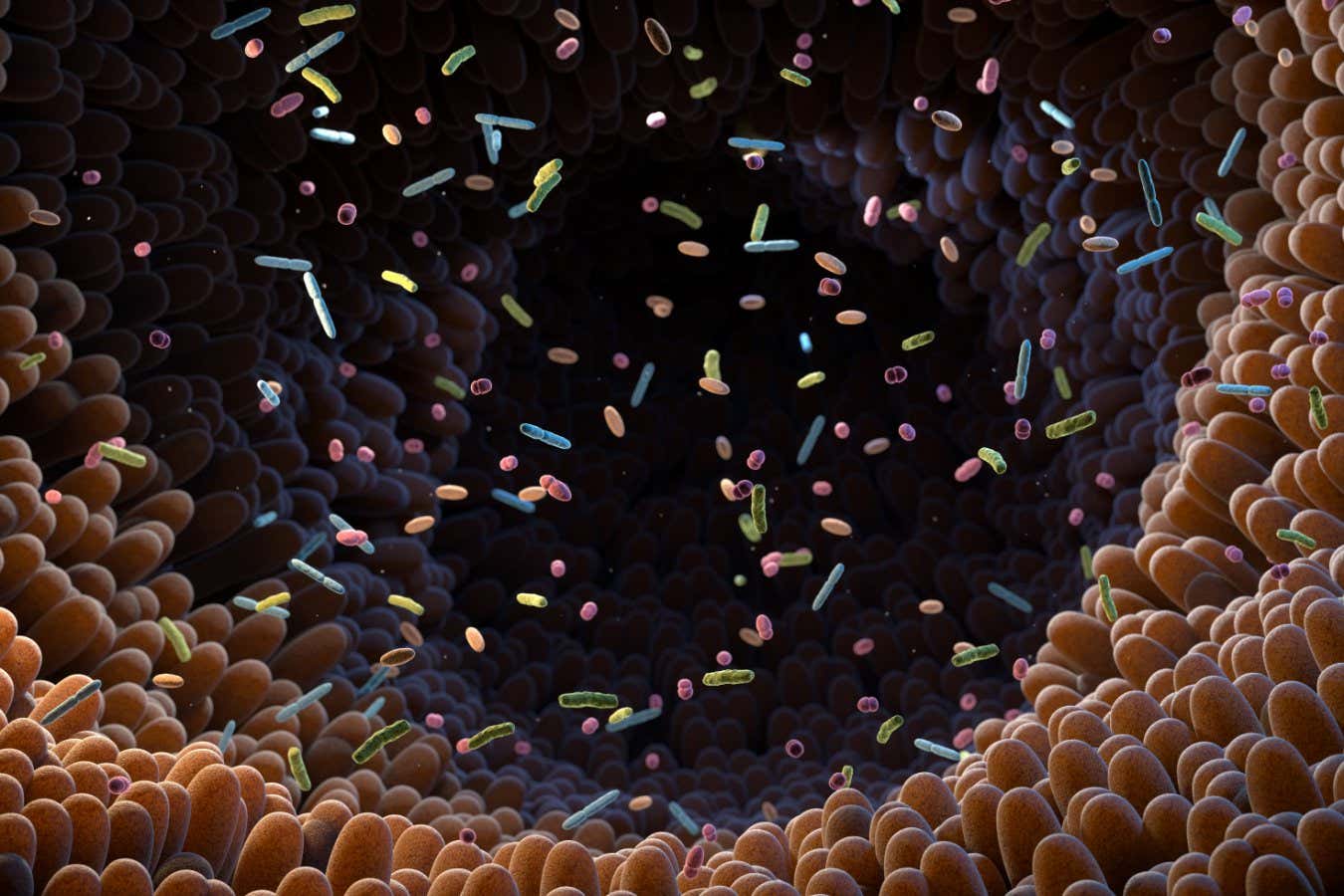Disrupted gut microbiomes in male mice increase their offspring’s risk of low birth weight, stunted growth and premature death
By Grace Wade
1 May 2024
Tiny microbes in the gut can play a big role in overall health
Tatiana Shepeleva/Shutterstock
Decreasing the diversity and abundance of gut microbes in male mice increases their offspring’s risk of low birth weight, stunted growth and premature death. This suggests that a father’s gut microbiome may impact infant health.
Plenty of research has established a link between microbes in mothers and infants, yet little is known about the impact of paternal gut health.
Read more
Are panda sex lives being sabotaged by the wrong gut microbes?
Advertisement
So Jamie Hackett at the European Molecular Biology Laboratory in Rome and his colleagues treated 28 male mice with antibiotics, which decreased the abundance of gut microbes in the animals by 10-fold and shifted their balance of microbial species.
The rodents – along with another 12 male mice that had stopped the antibiotic treatment two months earlier and 26 control mice not given antibiotics at all – then mated with females. Together the groups produced more than 400 offspring.
Pups from mice with impaired gut microbiomes had a variety of health issues not found in those whose fathers had not taken antibiotics or stopped the medication weeks before conception. They had significantly lower birth weights and were 2.5 times more likely to have severely stunted growth at 2 weeks old. Roughly 17 per cent of these pups died within three months, while only 5 per cent of those fathered by the control-group mice did.
